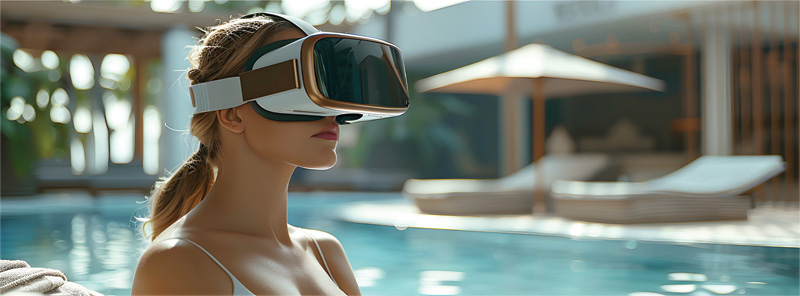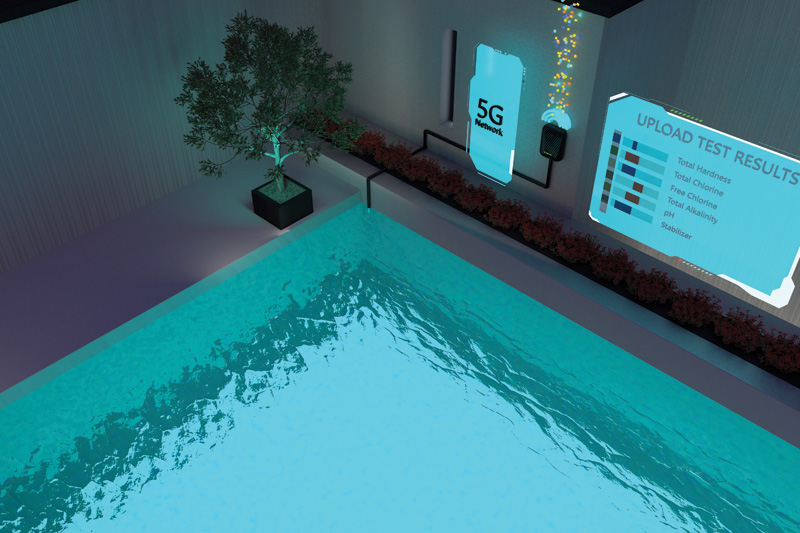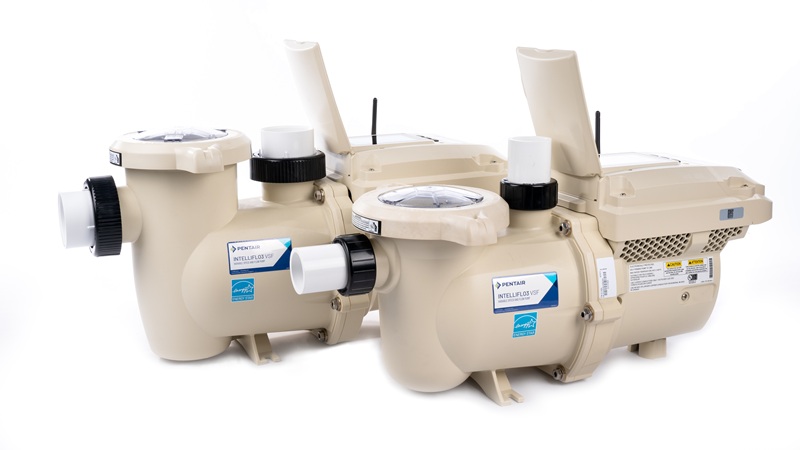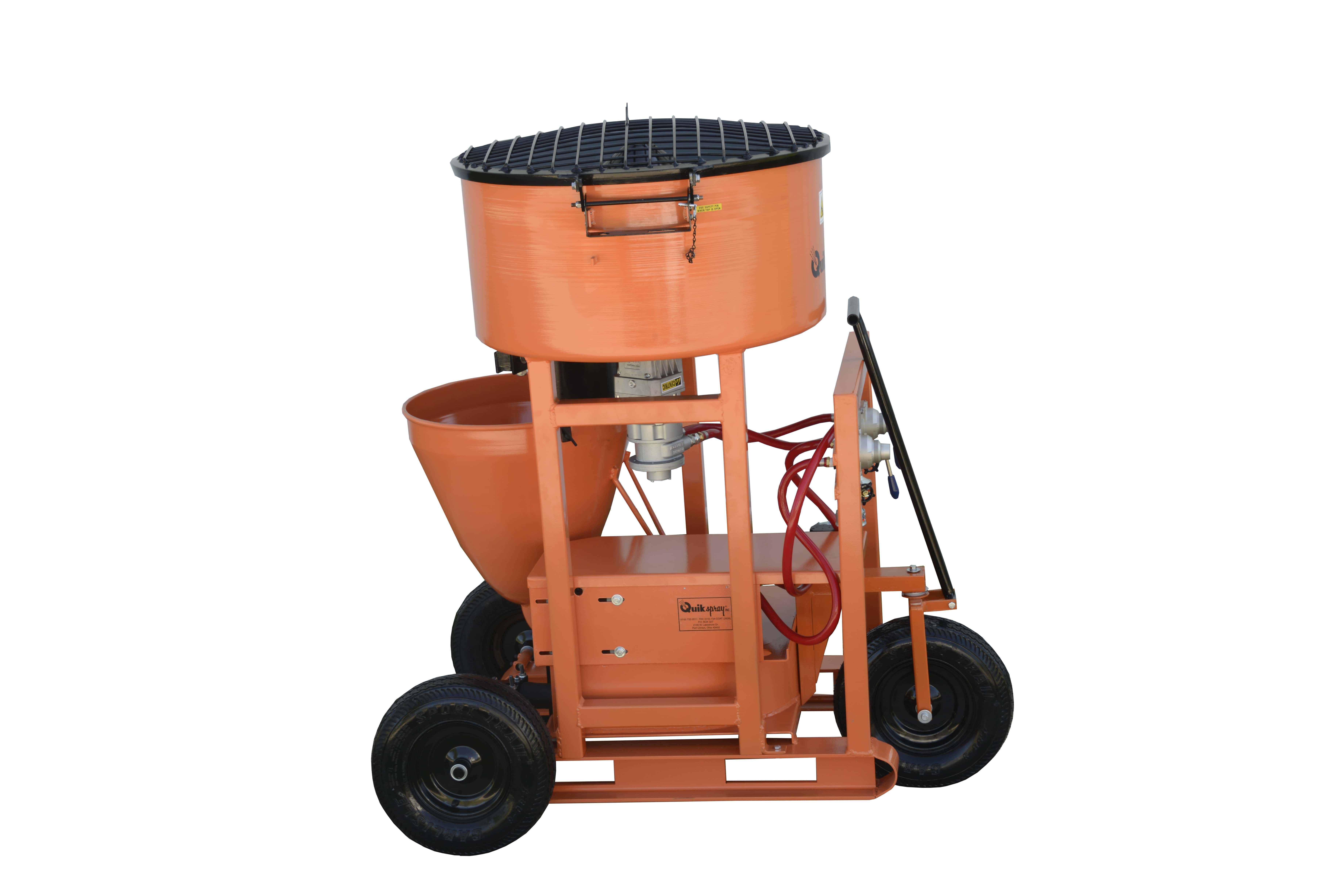How AI is transforming the industry: Innovation, trends, and future potential

Artificial intelligence (AI) is revolutionizing various industries, and the pool and spa sector is no exception. From smart automation to predictive maintenance and enhanced customer service, AI is making pool and spa ownership more convenient, cost-effective, and efficient. As more businesses and homeowners seek innovative ways to manage their pools and spas, AI-powered solutions are becoming essential tools for maintenance, safety, and sales.
So, what is AI?
AI is a set of technologies that allow computers to perform tasks that are usually done by humans. AI systems use algorithms, data, and computational power to simulate human intelligence. What does that mean, exactly? AI can see, understand, and translate spoken and written language, analyze data and make recommendations, respond to human conversations in customer support, and so much more.
The integration of AI into the pool and spa industry has been a gradual process, with early forms of automation and control systems establishing the foundation. Automated control technology, often regarded as an early iteration of AI, has been used for years to manage various pool functions, including filtration, heating systems, and smart water monitoring. Advancements have also been observed in design renderings, predictive maintenance, and other areas.
Here are five main areas/ways that AI has been integrated into the pool and spa industry:
Smart pool and spa monitoring: AI-driven automation
Smart water monitoring is one of the most significant (and original) AI advancements in the pool and spa industry. AI-enabled sensors and systems can continuously analyze water chemistry, ensuring the right balance of chemicals, temperature, and filtration.
AI-powered devices, such as some proprietary automated pool water monitoring systems, continuously measure key water chemistry parameters, such as pH, chlorine, and temperature, providing real-time insights, sending alerts and recommending precise chemical adjustments to reduce the need for manual testing.
Similarly, AI-driven pumps and filtration systems optimize water circulation based on real-time data, enhancing efficiency and lowering energy costs. Automated dosing systems streamline pool maintenance by dispensing the exact amount of chemicals needed, preventing overuse and ensuring water remains safe and balanced. This takes the guesswork out of balancing and maintaining pool and spa water and is undoubtedly a step up from traditional test strips.

AI in robotic cleaners: Smarter and more efficient
With AI-driven improvements, robotic pool cleaners have made great strides. These intelligent machines no longer follow random cleaning patterns but instead learn the pool’s layout, optimizing their paths to ensure complete coverage.
AI-powered robotic pool cleaners use advanced mapping technology to detect and remove debris with increased efficiency. Equipped with machine learning capabilities, many of these robot cleaners adapt their routes based on dirt accumulation patterns and past cleaning sessions. Many models feature AI-driven obstacle avoidance systems, allowing them to recognize and navigate around ladders, steps, and other obstructions. These smart cleaners can also self-diagnose maintenance needs, alerting owners when filters require cleaning or if mechanical issues arise. This leads to the next point.
Aiding in predictive maintenance and energy management
AI is also helping pool and spa maintenance be more proactive than reactive. Predictive analytics can anticipate potential issues before they become major problems, helping owners save on costly repairs and downtime.
AI-driven systems continuously monitor pump, heater, and filter performance, detecting anomalies that may signal potential malfunctions. Smart energy management tools optimize heating and filtration cycles based on weather conditions, reducing electricity consumption and operational costs. Some AI-enabled pool systems even suggest the best times to run pumps and heaters to take advantage of lower energy rates. (Which in today’s economy is a selling feature of its own). Additionally, AI-driven maintenance platforms analyze historical performance data to recommend scheduled service, helping to extend equipment lifespan and maintain efficiency.

The customer experience: Chatbots and virtual assistants
Many pool service companies are leveraging AI to enhance customer interactions through chatbots and virtual assistants.
AI-powered chatbots (e.g. Facebook’s business chatbots) enhance customer service by handling inquiries, providing maintenance recommendations, and scheduling service appointments. Cloud-based field service management software helps businesses streamline operations by automating scheduling, invoicing, payments, dispatching, and customer communication. Commonly used by service professionals in the pool and spa industry, this technology improves efficiency and simplifies daily task management.
When integrated into a customer relationship management (CRM) platform, virtual assistants help pool businesses manage leads, automate follow-ups, and personalize customer interactions. AI-driven analytics further improve the customer experience by predicting needs based on usage patterns, allowing businesses to offer proactive service solutions. Additionally, AI-based chatbots provide troubleshooting assistance, enabling users to resolve minor pool issues without requiring an on-site technician.
Pool and spa design and sales
Thanks to AI-powered tools, the sales and design process for pools and spas is also evolving. AI-driven 3D design software and augmented reality (AR) and virtual reality (VR) tools enable customers to visualize their pools and spas before construction, providing a realistic and immersive visualization of the final design that helps homeowners select the perfect layout for their space. Machine learning enhances sales by analyzing customer preferences and recommending the most suitable products based on their needs and budgets.
AI-powered sales analytics tools assist manufacturers, retailers, and service providers in predicting market trends, optimizing inventory, and refine pricing strategies. Additionally, AI-based recommendation engines personalize the customer experience by suggesting custom pool features such as lighting, heating, and water enhancements based on individual preferences and climate conditions.
Aside from the areas listed above, one of the most important ways AI is assisting the industry is drowning prevention. Water safety is a critical concern, and AI is vital in enhancing security measures. AI-enabled camera systems detect drowning risks in real-time by continuously tracking swimmers’ movements, analyzing their posture, position, and activity in the water, and immediately alerting lifeguards, homeowners, or emergency responders to help prevent accidents. AI drowning prevention systems can recognize normal swimming patterns versus unusual or erratic movements.
Some AI-powered monitoring systems integrate with smart home assistants such as Alexa, sending alerts about unsafe water conditions or unauthorized pool access for added security when homeowners are away. Allowing motion detection systems to differentiate between accidental and intentional pool entries reduces false alarms and improves overall safety.

While AI offers the industry numerous benefits, like everything in business, there are some challenges to consider:
- High initial costs: Many AI-enabled systems require a significant investment, which can be a barrier for small businesses and homeowners.
- Data privacy and cybersecurity risks: AI-powered systems collect and store data, raising concerns about potential security breaches.
- Dependence on internet connectivity: Many smart systems rely on Wi-Fi or cloud-based services, which could lead to downtime if connectivity is lost.
- Need for human oversight: While AI automates many processes, human intervention is still necessary to manage unexpected situations or system failures (which is not necessarily bad as it creates jobs).

What is next for the industry?
Exciting innovations that make maintenance easier, improve efficiency, and enhance the user experience will remain a priority. The development of pool surface coatings capable of autonomously repairing minor damages may emerge, reducing maintenance efforts and extending the lifespan of pool structures. AI-powered water conservation systems will adjust water levels based on weather and usage, helping save resources, especially during heat waves. Smart pool and spa covers may even be deployed independently to minimize heat loss and cut energy costs.
For entertainment, AI-enhanced poolside systems will personalize music, lighting, and visuals to create a customized atmosphere. Personalization has been a driving marketing force, and that continues through AI spa features that will remember user preferences for jets, temperature, and aromatherapy.
And most importantly, AI-integrated wearables will track swimmers’ vitals for drowning prevention and water safety. For example, wearable devices are available that monitor swimmers’ movements and vital signs, detecting irregular patterns that may indicate distress. It sends immediate alerts to lifeguards or caregivers, facilitating prompt intervention. Similarly, wearables (e.g. bracelets) are designed for children, and monitor vital signs and movement, detecting prolonged submersion or lack of motion.
AI is transforming the pool and spa industry by making maintenance, cleaning, energy management, and customer interactions smarter and more efficient. As technology advances, embracing AI will be crucial for companies looking to stay ahead in this competitive industry. Now is the time for pool professionals to explore AI-powered tools and integrate them into their operations to enhance efficiency, reduce costs, and improve customer satisfaction.
As AI continues to revolutionize the pool and spa industry, its rapid advancement raises broader discussions about its impact beyond business operations. This rapid progress has sparked debates about the balance between innovation and regulation. Some argue that AI is evolving faster than laws and policies can keep up, raising concerns about potential misuse if left unchecked. Others believe imposing regulations could stifle innovation and lead to overly complex or ineffective rules. What do you think?
Author
Crystal Lengua-Rowell serves as the vice-president of SMP Specialty Metal Products/Ultralift. Her extensive experience in the pool and spa industry spans 24 years, cementing her status as a seasoned veteran. Lengua-Rowell’s expertise extends beyond the confines of her office, as she actively participates in in-class seminars, delivers captivating speeches on trade show platforms, and contributes written work to publications such as Pool & Spa Marketing. In recognition of her accomplishments, Spa Retailer Magazine featured her as a “Power Woman” in her field during her illustrious career. Alongside her professional endeavours, she is a devoted mother of four, a recent graduate of York University, a passionate yogi, and an advocate for female empowerment. Her educational journey boasts many achievements, including graduation in marketing management, public relations and corporate communications, professional sales, social media marketing, and event management. She also holds a certification in mindfulness meditation from the University of Toronto, equipping her with valuable tools for self-care and personal growth.






